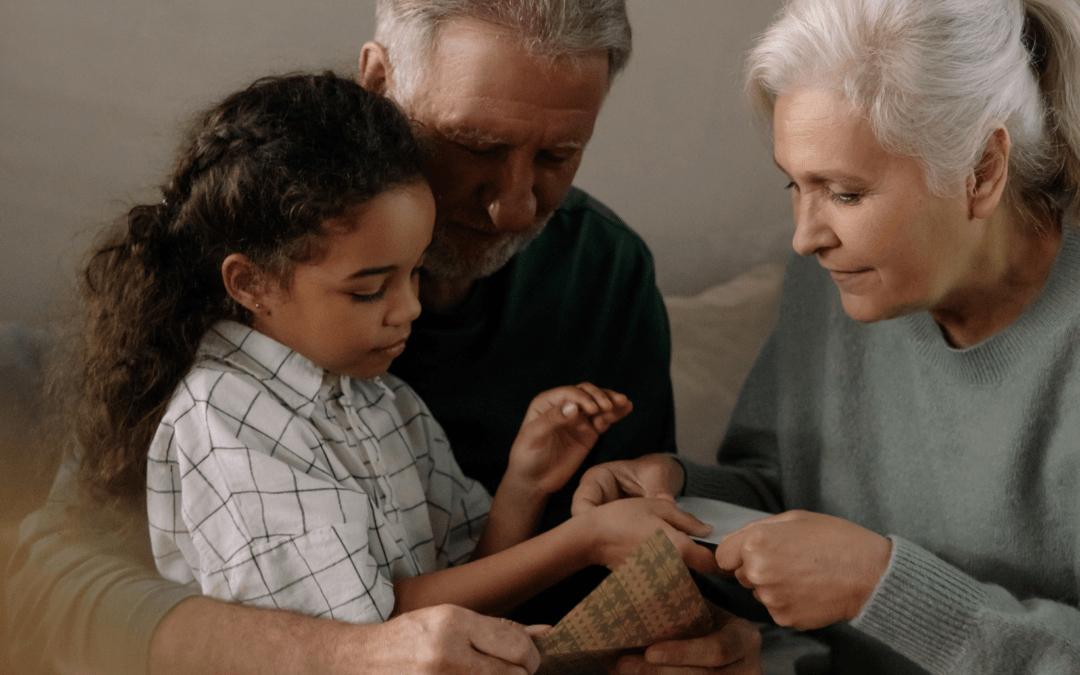What is generational trauma? Have you ever wondered why certain patterns seem to repeat in families—even across generations? Perhaps it’s an unspoken tension, a tendency toward anxiety, or even cycles of poverty or abuse. These patterns might be more than just coincidence; they could be signs of generational trauma. Let’s unpack what generational trauma is, how to recognize it, and what you can do to break the cycle for yourself and future generations.
What is Generational Trauma?
Generational trauma, also known as intergenerational or transgenerational trauma, refers to the psychological and emotional effects of trauma that are passed down from one generation to the next. It’s not just about the trauma experienced by one person—it’s how the effects of that trauma ripple through a family’s behaviors, beliefs, and interactions over time.
So, what does this look like in real life? Let’s dive into an example.
What is an Example of Generational Trauma?
Imagine a family where a grandparent survived a war or lived through systemic oppression. The fear, scarcity mindset, and hypervigilance they developed to cope with their trauma might be passed down to their children. These children, even if they didn’t directly experience the trauma, may grow up in an environment shaped by fear, mistrust, and suppressed emotions. As they become parents themselves, they may unknowingly pass these traits to their own children.
For instance, studies on Holocaust survivors and their descendants have shown higher rates of anxiety, depression, and stress-related disorders. Similarly, communities affected by slavery, colonization, or forced displacement often see lingering effects of those traumas in subsequent generations.
How Do I Know My Generational Trauma?
Recognizing generational trauma in your life can feel like connecting the dots in a puzzle. Here are some signs that it might be at play:
- Recurring Family Patterns: Are there cycles of abuse, addiction, or mental health struggles in your family? Do certain dynamics feel “unchangeable” despite your efforts?
- Emotional or Behavioral Challenges: Do you or your family members struggle with chronic anxiety, low self-esteem, or feelings of guilt and shame without a clear cause?
- Family Stories: Listen to the narratives your family shares (or avoids). Unspoken rules, secrecy, or a tendency to minimize past hardships can signal unresolved trauma.
- Physical Health Issues: Generational trauma can manifest physically, contributing to stress-related conditions like heart disease, high blood pressure, or autoimmune disorders.
- Triggers Without Clear Origins: Do certain situations make you feel overly reactive or emotionally overwhelmed, even if they seem unrelated to your personal experiences?
A mental health professional trained in trauma work can help you explore these signs and uncover their roots.
Is Trauma Passed Down in the Womb?
Yes, trauma can be passed down biologically, and the womb plays a critical role. Research has shown that a pregnant person’s stress levels can affect the developing fetus. High levels of cortisol (a stress hormone) during pregnancy may influence the baby’s brain development, leading to heightened sensitivity to stress or difficulty regulating emotions later in life.
Moreover, epigenetics—the study of how environmental factors can alter gene expression—provides evidence that trauma can leave a biological imprint. While the genes themselves don’t change, trauma can “switch on” or “off” certain genetic expressions, potentially passing the effects of trauma to future generations.
What are 5 Key Symptoms of Intergenerational Trauma?
Intergenerational trauma often manifests in ways that might not immediately seem connected to past events. Here are five key symptoms to watch for:
- Hypervigilance: A constant state of alertness or fear, often disproportionate to the actual situation.
- Difficulty Trusting Others: A tendency to keep people at arm’s length or expect betrayal, even in safe relationships.
- Emotional Dysregulation: Struggling to manage emotions, leading to outbursts, shutdowns, or feelings of being overwhelmed.
- Low Self-Worth: Deep-seated feelings of inadequacy, guilt, or shame that can affect relationships and decision-making.
- Repeating Cycles: Continuing patterns of abuse, neglect, or dysfunction, even when there’s a conscious desire to change.
Breaking the Cycle
If this sounds familiar, take heart: recognizing generational trauma is the first step toward healing. Here’s what you can do:
- Seek Therapy: Therapies like EMDR (Eye Movement Desensitization and Reprocessing), somatic experiencing, and trauma-focused CBT (Cognitive Behavioral Therapy) can be transformative.
- Educate Yourself: Learning about trauma and its effects can empower you to make informed decisions about your healing journey.
- Practice Mindfulness: Techniques like meditation, journaling, and grounding exercises can help you manage triggers and connect with the present moment.
- Foster Open Communication: Breaking cycles often starts with honest conversations about the past. Share stories, ask questions, and encourage healing within your family.
- Build Resilience: Focus on strengths, cultivate supportive relationships, and develop healthy coping strategies to create a more positive legacy for future generations.
Generational trauma can feel like an invisible weight, but it doesn’t have to define your future. By understanding its roots and symptoms, you can begin to break the cycle, creating space for healing, growth, and joy—not just for yourself, but for generations to come.
Get Started
You may call, text message, email, or fill out the form to reach us. We will respond within 48 hours, Monday through Friday.
We Will Help You Find Your Fit
We know that looking for a counselor can feel overwhelming.
We are here to help guide you to the counselor that is best for your needs. If that counselor turns out to
not be in our practice, that's okay. We know great counselors that we'd be happy to refer you to.
What’s most important to us is that you get connected with the help you need. We are here for you.

